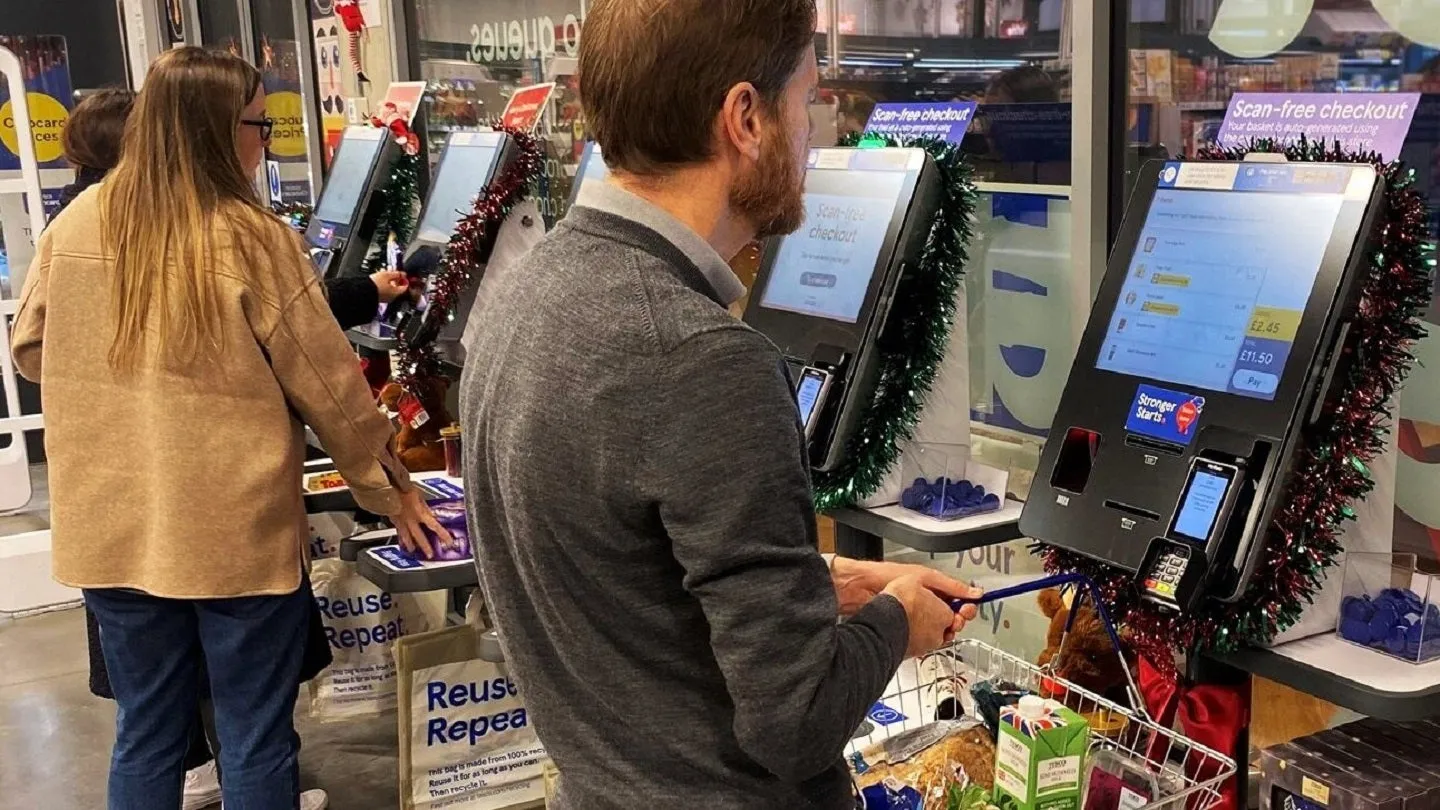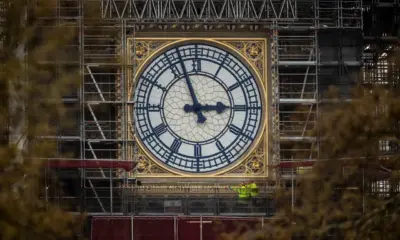Tech
Tesco Self-Checkout Mistakes Trigger Smart Contracts

By Hannah Reed – Consumer and Finance Satirist
From Unexpected Item to Unexpected Blockchain
Tesco’s self-checkouts have long frustrated shoppers with their robotic cries of “Unexpected item in the bagging area.” But according to a new rumour, those nagging machines have now been upgraded with blockchain. Every error allegedly triggers a smart contract, instantly deducting fees from digital wallets and logging the mishap forever on-chain.
One witness described placing bananas on the scale only to see a transaction hash flash across the screen. “I thought I was buying fruit,” she said, “but apparently I just deployed a smart contract called BananaSwap.”
Shoppers React
Chaos followed almost immediately. A father of three reported that his child’s accidental double-scan of KitKats cost him not just £2.50 but also a £5 “gas fee.” Meanwhile, a pensioner claimed her attempt to buy a loaf of bread accidentally locked her into a staking pool for sourdough.
Tourists were no better off. One visitor from Italy believed she had simply purchased a meal deal, only to find her sandwich immortalised as part of a “Tesco DeFi liquidity pool.”
Fake or Real?
Social media platforms exploded with speculation. Twitter polls showed 54 percent believed Tesco had indeed integrated blockchain into self-checkouts. “It makes sense,” one user wrote. “They already trap us with loyalty points and Clubcard pricing. Smart contracts are just the next trap.” Another replied, “Fake, but believable. Tesco already feels like it runs on hidden algorithms.”
One satirical account added, “Tesco checkout now officially powered by Proof of Snack.” Another joked, “Every beep is a block.”
Memes Flood the Aisles
Memes sprouted online faster than loaves in the bakery aisle. One viral image showed a glowing Tesco checkout machine captioned, “The Future of Groceries is Immutable.” Another mocked up a crypto chart showing “Meal Deal Yield Farming” spiking every lunchtime.
A favourite meme read, “Tesco sandwich £3.50. Tesco blockchain sandwich £350 plus fees.” Another caption showed a Clubcard with the words, “Your loyalty has been tokenised.”
Tesco Defends the Rumour
Some Tesco managers leaned into the satire. One reportedly said, “We’ve been charging for bags for years. Why not charge for smart contracts too?” Another joked, “Unexpected items are no longer errors, they’re investment opportunities.”
Critics, however, called the idea absurd. “It’s bad enough when I forget to scan a carrot,” one shopper groaned. “Now I risk accidentally launching a decentralised finance protocol.”
Why It Resonates
The rumour resonates because shopping at supermarkets already feels like an elaborate financial system. Between loyalty cards, confusing discounts, and endless checkout errors, customers often feel they are negotiating contracts rather than buying groceries. Adding blockchain only exaggerates the absurdity.
An LSE professor quipped, “Tesco smart contracts reflect Britain’s economy perfectly. Complex, expensive, and designed so you always lose a little more than you expected.” The line spread widely, often paired with images of queues stretching down the frozen food aisle.
Satirical Vision of the Future
If Tesco self-checkouts truly trigger smart contracts, what comes next? Sainsbury’s could launch “CarrotCoin,” Asda might release “DonerDAO,” and Aldi could let shoppers stake potatoes for cashback. Even corner shops might issue “NFT Scratchcards,” ensuring every failed lottery ticket is forever preserved.
One parody advert already circulates: a family proudly holding glowing groceries under the slogan, “Own Your Shopping, Own the Future.”
The Bigger Picture
Behind the humour lies a critique of consumer life. British supermarkets already trap shoppers in systems of loyalty pricing and targeted advertising. Turning checkout errors into immutable blockchain contracts highlights how easily everyday frustrations can be transformed into costly gimmicks.
Cultural critics argue the rumour reflects a deeper truth: in a society where property ownership feels out of reach, people cling to small victories like buying groceries even if they are forced to tokenise their bananas along the way.
Conclusion
Whether Tesco self-checkouts truly run on blockchain hardly matters. The rumour has already taken hold in London’s meme economy. For some, it is a hilarious commentary on the absurd reach of technology. For others, it is a bleak reminder of how ordinary shopping trips have become more complicated and more expensive.
So the next time you hear “Unexpected item in the bagging area,” do not just roll your eyes. Check your wallet. Because in 2025, even your meal deal might come with a contract.
By Hannah Reed – Consumer and Finance Satirist
hannah.reed@londonews.com






















